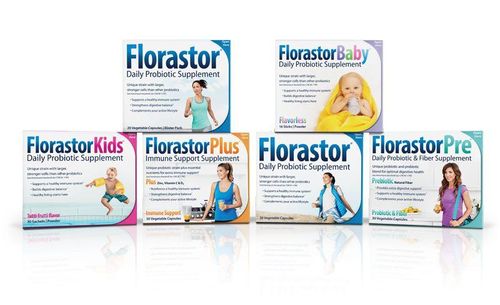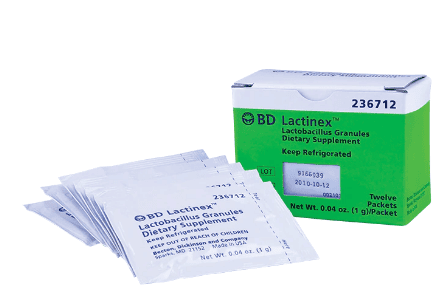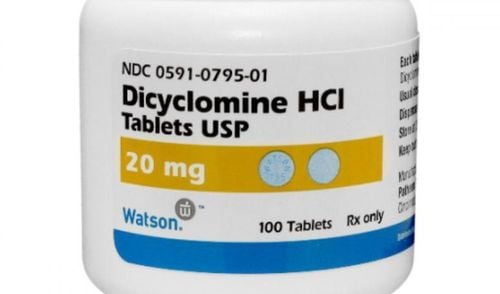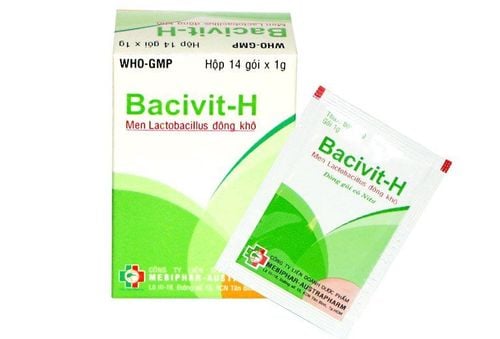This is an automatically translated article.
Posted by Master, Doctor Mai Vien Phuong - Department of Examination & Internal Medicine - Vinmec Central Park International General HospitalProbiotics is a hot topic right now, especially for people with irritable bowel syndrome (IBS). Irritable bowel syndrome is a chronic disease that causes abdominal pain and changes in bowel habits. Many people take probiotics in the hope that balancing their gut bacteria will improve their symptoms.
This article reviews the latest research on probiotics for Irritable Bowel Syndrome, including specific strains and symptoms.
1. What is irritable bowel syndrome?
Irritable bowel syndrome is a chronic disease characterized by abdominal pain or discomfort, as well as gas, bloating, constipation, and diarrhea. It affects 7–21% of people worldwide and is three times more common in women than in men in the West, although the difference is not large in Asia.
The exact cause of Irritable Bowel Syndrome is unknown. However, some suggested causes include changes in gastrointestinal motility, infections, brain-intestinal interactions, bacterial overgrowth, food sensitivities, carbohydrate malabsorption, and inflammation. intestine.
Eating certain foods can trigger symptoms and stress can worsen them.
Irritable bowel syndrome is diagnosed when you have abdominal pain at least one day per week for three months, plus at least two of the following symptoms: Pain related to bowel movements, change in stool quantity or change in stool shape.
Another subtype, called “post-infectious” irritable bowel syndrome, has also been suggested for people who develop the disease after an infection. This subcategory applies to 25% of people with Irritable Bowel Syndrome.
Treatment for all subtypes including medication, diet and lifestyle improvement, FODMAP and lactose elimination and probiotic use.
Irritable bowel syndrome is a chronic disease characterized by abdominal pain and altered bowel movements. Its etiology is still poorly understood but may involve brain-gut interactions, bacterial overgrowth, infection, inflammation, and sensitization.

2. What are probiotics?
Your digestive system is full of beneficial bacteria called gut flora, and they play an important role in your health.
Probiotics are live bacteria or yeast found in foods and supplements. They are safe, similar to natural gut flora and offer health benefits.
People use them to promote healthy, balanced gut bacteria. They may offer a number of health benefits, such as aiding weight loss, improving heart health, improving digestion, and boosting the immune system.
Some common probiotic foods include yogurt, sauerkraut, tempeh, kimchi, and other fermented foods.
Probiotics are live bacteria and yeast that people can consume to support and help balance the body's natural flora. Common sources include yogurt, fermented foods, and supplements.
3. How Do Probiotics Work With Irritable Bowel Syndrome?
A significant amount of recent research has explored how probiotics can be used to treat and manage Irritable Bowel Syndrome.
Irritable bowel syndrome symptoms are related to certain changes in the gut microbiota. For example, people with Irritable Bowel Syndrome have lower levels of Lactobacillus and Bifidobacterium in their intestines, and higher levels of harmful Streptococcus, E. coli, and Clostridium.
Additionally, up to 84% of Irritable Bowel Syndrome patients experience bacterial overgrowth in the small intestine, which can lead to many of their symptoms.
Changes in the gut microbiome can influence Irritable Bowel Syndrome symptoms by increasing inflammation, increased sensitivity to intestinal gas, decreased immune function, and altered gastrointestinal motility.
Probiotics have been suggested to improve symptoms by:
Inhibiting the growth of pathogenic bacteria Strengthening the barrier functions of the immune system Helps fight inflammation Slowing bowel movements Reducing gas production by how to balance the gut microbiome Reduce the sensitivity of the gut to gas buildup However, not all probiotics are created equal. In fact, the term “probiotic” includes many different strains, types of bacteria, and yeasts. Their health effects vary depending on the type.
An imbalance in gut flora can contribute to Irritable Bowel Syndrome symptoms. Probiotics help restore balance in a number of ways, including by inhibiting the growth of harmful bacteria, reducing inflammation, and slowing down the digestive system.

4. Can Probiotics Improve Irritable Bowel Syndrome Symptoms?
A 2016 comprehensive review concluded that the benefit of probiotics for the treatment of Irritable Bowel Syndrome is unknown. It cites the small study size and lack of consistent data.
However, some studies have shown that specific probiotics may have the ability to target specific symptoms. Probiotics from the Bifidobacterium, Lactobacillus and Saccharomyces families have shown particular promise.
Overall symptom improvement
In a review by the British Dietetic Association (BDA), 29 studies assessed overall symptom improvement and 14 of these showed positive results for 10 categories different probiotics. However, results are inconsistent and most strains only have a small amount of research behind them. More research is needed.
Abdominal pain
Abdominal pain is one of the main symptoms of Irritable Bowel Syndrome. It is usually found in the lower abdomen or the entire abdomen and subsides after a bowel movement.
Seven probiotics have been linked to improved colic symptoms. 7 strains of probiotics have been found to help relieve pain. However, more research is needed to confirm the results.
Bloating
Excess gas production and increased sensitivity can cause uncomfortable bloating and gas in Irritable Bowel Syndrome.
In the 2016 BDA review, only two studies showed that probiotics specifically reduced bloating, and only one found them to reduce bloating.
An additional study found that irritable bowel syndrome participants experienced a reduction in bloating and gas after four weeks of treatment with a four-strain supplement containing B. lactis, L. acidophilus, L. bulgaricus, and L. bulgaricus. S. thermophilus.
Diarrhea
About 15% of people with Irritable Bowel Syndrome experience a predominantly diarrheal form.
Although there has been a great deal of research on probiotics for infectious diarrhea, less is known about the effects of probiotics on non-infectious types, such as in Irritable Bowel Syndrome prefer .
Overall, it seems that using probiotics to treat diarrhea in Irritable Bowel Syndrome is not very effective, as only a few small-scale studies have shown improvement.
While the use of probiotics for the treatment of infectious diarrhea is well documented, there is less evidence for its use in Irritable Bowel Syndrome diarrhea. B. coagulans and S. boulardii, as well as some multi-strain preparations, may have positive effects, but more research is still needed.
Constipation
The most common form of Irritable Bowel Syndrome is the predominant form of constipation, affecting nearly half of all sufferers.

Studies on Irritable Bowel Syndrome, which primarily causes constipation, sought to determine whether probiotics could increase bowel movements and alleviate associated symptoms.
As with most of the other symptoms discussed, while some of these results are promising, studies to date are few. There hasn't been enough research to confirm whether probiotics actually benefit people with Irritable Bowel Syndrome (IBS) constipation.
.
5. Should You Take Probiotics If You Have Irritable Bowel Syndrome?
Despite some promising research, it's too early to make general recommendations for probiotic use for Irritable Bowel Syndrome.
While some strains have been shown to benefit a symptom or two, the majority of probiotics are unlikely to improve.
However, probiotics are safe and a relatively inexpensive potential treatment option for Irritable Bowel Syndrome. Additionally, they have worked for some people, especially for those with specific symptoms.
If you're interested in trying a probiotic, there's a great selection on Amazon.
6. Here are some key tips when making your selection:
Choose an evidence-based probiotic: Choose a probiotic that has research to support it
Choose a probiotic according to your symptoms: Choose the strains that are right for your problems
Take the right dosage: Take the exact manufacturer-recommended dosage
Stick with one: Try one for at least four weeks and monitor your symptoms
Remember that some probiotic supplements contain ingredients may make your symptoms worse. These include oats, inulin, lactose, fructose, sorbitol and xylitol. If your symptoms are triggered by any of these, look for a probiotic that doesn't contain them.
By taking the time to choose a probiotic that best suits your needs, you may find them to be an effective complementary treatment for your Irritable Bowel Syndrome symptoms.
Even if you don't see significant improvements, probiotics offer other great health benefits and can be a valuable component of a healthy lifestyle.
Currently, Vinmec International General Hospital is a prestigious address trusted by many patients in performing diagnostic techniques for digestive diseases, inflammatory bowel disease, short bowel syndrome, diseases causing chronic diarrhea , Crohn's disease, ectopic gastric mucosa in the esophagus...
Vinmec Hospital with modern facilities and equipment and a team of experienced experts, always dedicated to medical examination and treatment, Customers can rest assured with gastroscopy and esophagoscopy services at Vinmec International General Hospital.
Please dial HOTLINE for more information or register for an appointment HERE. Download MyVinmec app to make appointments faster and to manage your bookings easily.














